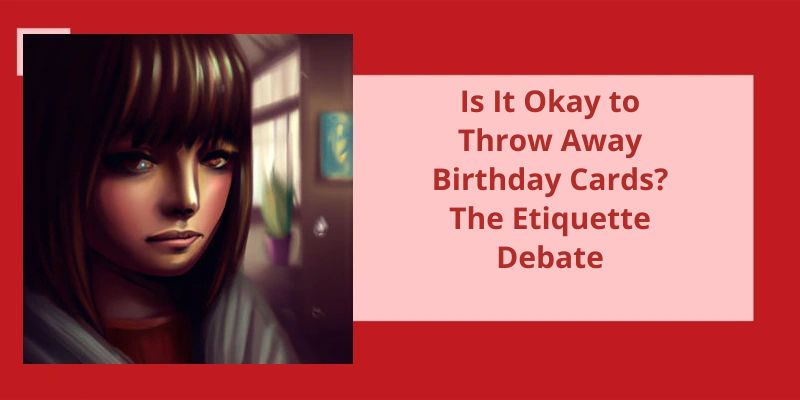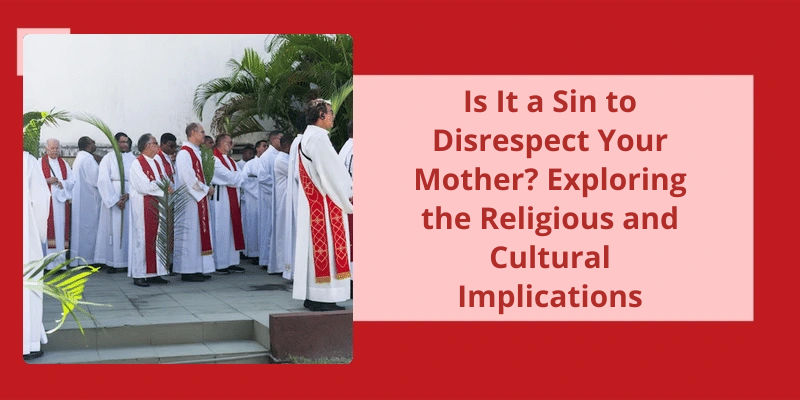Old greeting cards have a way of piling up in drawers and cabinets, collecting dust and taking up space. But what do you do with them? Some people see them as sentimental keepsakes, filled with heartfelt messages and memories to cherish forever. Others view them as clutter that serves no real purpose. The question is, is it okay to throw away birthday cards? It's a tricky one, as emotions can be involved, but the truth is, unless a card holds sentimental value or a significant message, there’s no harm in getting rid of it. After all, it's the thought that counts, not the physical object. So pull out that trash can and toss away those old cards guilt-free, knowing that the sentiment behind the card is still appreciated and cherished.
Is There Any Reason to Keep Old Greeting Cards?
Some people keep old greeting cards as a visual reminder of the people they care about. For them, the cards serve as a connection to faraway friends and family members. By keeping these mementos, people feel like theyre holding onto a piece of the person they love. This is especially true for cards given by loved ones who’ve passed away. These greeting cards can become a cherished part of the family history.
Some old cards were hand-drawn or painted, and the designs can be intricate and beautiful. For collectors and art enthusiasts, these cards represent a piece of history, and they can be displayed alongside other vintage items. Some people even use old cards in creative ways, such as by framing them or using them to make art.
Some milestone events, such as weddings or births, are worth remembering. By holding onto the cards received during those times, people can reminisce about the joy and excitement they felt during those moments.
Using Old Greeting Cards as Inspiration for Writing Personal Messages
- Look through old greeting cards to find inspiration for personal messages
- Use the design and sentiments of the old card as a guide
- Consider the occasion and relationship when crafting the message
- Add your own personal touch and wording to make it unique
- Express your heartfelt message in a sincere and thoughtful way
- Remember to sign your name and date the message for a personal touch and keepsake
- Consider using old cards to create new handmade cards with personalized messages
- Enjoy the process of creating and sharing meaningful messages with loved ones
Now that we’ve established that old greeting cards may not be worth holding onto, let’s explore some other items that may be cluttering up your home and whether or not they’re worth keeping.
Are You Supposed to Keep Birthday Cards?
Birthday cards and old greeting cards are a common sight in most households. However, the question often arises, are you supposed to keep them? It’s a tricky situation as emotions can be attached, and people often feel guilty throwing them away. But the reality is, most greeting cards aren’t keepsakes that need to be stored or framed.
People often get confused between memories and things that occupy space. While some cards have sentimental value, the majority are generic, and theres no real attachment to them. Keeping every single card youve ever received can be counterproductive as it would take up unnecessary space. It’s essential to assess each cards value and decide whether it’s worth keeping or not.
Throwing away a card doesn’t equate to disregarding someones love. People show love in different ways. The time and effort the person took to purchase and send the card are greatly appreciated. But the point of the card is to let the recipient know that they’re loved, appreciated, and remembered, not to serve as a permanent reminder.
It’s also crucial to remember the environment when deciding whether to keep a card or not. Hoarding cards isn’t a good practice as it’s not environmentally friendly. Cards can pile up, take up space, and eventually contribute to waste and pollution. And considering that theyre not always sentimental, it’s essential to decide whether it’s worth contributing to environmental degradation.
Unless a greeting card has something special and meaningful written inside, it’s okay to toss it away after a while. While emotions are attached to memories, it’s crucial to know when to let go of certain things that serve no purpose.
While birthday cards are a thoughtful way to acknowledge someone’s special day, many people often wonder how long they should keep them. While there’s no set timeline, people have different preferences and sentimental attachments to their cards. Some may choose to keep them indefinitely, while others may decide to toss them after a certain period. However, there’s a general rule of thumb for those looking to declutter, which suggests disposing of cards after the next holiday or within two months after receiving them.
How Long Do People Keep Birthday Cards Up?
When it comes to birthday cards, people tend to keep them up for varying periods of time. Some people take them down immediately after their birthday, while others keep them up for months on end.
If someone lives in a small apartment with limited wall space, they may need to take their birthday cards down sooner than someone who’s a larger home with more wall space to display them.
Others may take them down relatively quickly as a way to move on from the celebration and start focusing on other things.
The Emotional Significance of Birthday Cards and How They Impact People’s Mood and Overall Well-Being.
There’s an emotional connection that people have with birthday cards, and receiving them can positively affect their mood and well-being.
Source: How long should a person keep holiday/birthday cards before …
When it comes to card giving and receiving, many of us have been conditioned to keep them all, no matter their sentimental value. But, as we’ll explore further in this article, not all cards are created equal. While some might warrant a special place in your heart (or your card box), others can be safely recycled or thrown away. So, if you’ve been wondering what to do with all those cards piling up, keep reading for our tips and tricks.
Are You Supposed to Keep Cards?
But it’s important to remember that the meaning behind a card can still hold true even if the physical card isn’t kept. Sometimes the sentiment is more important than the object itself. And in reality, keeping every single card can quickly become overwhelming and cluttered. It’s okay to keep only the most special ones that truly hold meaning for you.
One thing to consider is the space and storage necessary for keeping cards. If every single card is kept, it could take up a lot of room over time. It’s important to prioritize which cards hold the most meaning and are worth keeping long-term. Sometimes, taking a picture of the card can be a great way to remember it without taking up physical space. It’s also important to periodically go through and evaluate which cards are still important to keep and which can be let go.
Another consideration is the sentiment behind the card. If the card was given during a particularly meaningful moment in your life, such as a wedding or birth of a child, it may hold more sentimental value. But if it was just a random card given for no particular reason, it may not hold the same level of importance. Evaluating the sentiment behind the card can be a great way to decide whether or not it’s worth keeping.
Collecting cards can also be a fun hobby, and in this case, keeping cards may be more important. For example, collecting vintage postcards or rare greeting cards can hold monetary value and may be worth keeping in pristine condition. In these circumstances, it’s important to properly store and protect the cards to ensure their longevity.
The History and Evolution of Greeting Cards as a Cultural Tradition
Greeting cards have been a cultural tradition for centuries and have undergone significant evolution over time. Initially hand-made, they evolved into mass-produced cards in the 19th century with advances in printing technology. The first Christmas card was sent in 1843, and since then, cards for various occasions have become a popular way to express emotions and send well wishes. In recent years, digital cards have also become popular, but physical cards remain a cherished tradition for many people.
It’s important to know what can and can’t be recycled when it comes to greeting cards, especially birthday cards which are a popular way to celebrate someone’s special day. While most cards and envelopes made of paper can be recycled, there are some exceptions to be aware of, such as those covered in glitter or made from photo paper.
Do Birthday Cards Get Recycled?
It’s common practice for people to send birthday cards to their loved ones on their special day. However, environmental concerns have led many to question whether these cards are truly disposable or if they can be recycled. The answer to this question isn’t as simple as a yes or no, but rather depends on the materials used to make the card.
Greeting cards and envelopes made of paper are usually okay to recycle. This means that cards made from standard printer paper, cardstock, or other types of paper materials can be placed in the recycling bin for collection. These cards are typically printed with ink, which doesn’t affect their recyclability. Recycled paper products are turned into new paper products, so recycling these cards is a great way to reduce waste and conserve resources.
Glitter is made from small pieces of plastic that don’t break down over time and can cause harm to the environment if they end up in the wrong place. Photo paper is also not recyclable because it’s coated in a layer of plastic that prevents it from being turned into new paper products. These cards should be thrown away in the trash instead of being recycled.
For those who’re concerned about the environmental impact of sending birthday cards, there are alternative options available. E-cards or digital cards are a great way to send birthday greetings without producing any waste. Some e-card services even allow users to create custom cards with their own photos and messages, making them a thoughtful and unique option for sending birthday wishes.
While not all birthday cards can be recycled, many can be. Cards and envelopes made of paper can be recycled, while those with glitter or made from photo paper cannot. For those who want to go even further in reducing waste, e-cards are an excellent choice. By making small changes like recycling and sending e-cards, we can all do our part in protecting the environment.
How Can You Find Out if a Specific Birthday Card Is Recyclable?
To determine if a birthday card is recyclable, you can check the packaging or tags on the card for recycling symbols. Look for the universal recycling symbol, which indicates that the card is recyclable. Additionally, if the card is made from paper or cardboard and doesn’t contain any glitter or other non-recyclable materials, it’s likely recyclable.
Everyone has their own way of managing social obligations, and for some, sending birthday cards may not be a part of their personal style. While some may view this lack of action as rude, it’s ultimately up to each individual to decide how they want to participate in the birthday celebration culture. Choosing to forgo sending cards doesn’t necessarily mean you’re being impolite – it simply reflects your personal priorities and preferences.
Is It Rude Not to Send Birthday Cards?
However, it’s important to consider the impact of not sending a birthday card on the recipient. For some people, receiving a card is a thoughtful gesture that shows someone cares and has taken the time to acknowledge their special day. Not receiving a card could leave them feeling ignored or unimportant.
This could be through a phone call, a text message, or even a social media post. The important thing is to let them know youre thinking of them on their special day.
If youre close with someone and have a history of exchanging birthday cards, it could be seen as rude not to continue that tradition. But if you don’t typically exchange cards and the recipient doesn’t expect one, it’s likely not a big deal.
The Cultural Significance of Sending Birthday Cards in Different Countries and Regions.
- In Japan, it’s customary to send birthday cards with a monetary gift enclosed, to show respect and appreciation for the recipient.
- In India, birthday cards are often accompanied by small gifts, such as sweets or flowers.
- In China, it isn’t common to send birthday cards but a gift or a red envelope with money is given to the person celebrating their birthday.
- In the United States, birthday cards are a popular way to show affection and well wishes to loved ones on their special day.
- In Mexico, it’s common to celebrate birthdays with parties and the giving of “piñatas” filled with sweets and treats.
- In Germany, birthday cards are typically humorous and often contain jokes or puns.
- In Brazil, it’s customary to sing “Parabéns a Você” (“Congratulations to You”), a Portuguese version of “Happy Birthday,” and to celebrate with a cake and other sweets.
Conclusion
These cards aren’t meant to be kept as long-term keepsakes, and unless they contain a special message or personal sentiment, they serve little purpose beyond their initial purpose of conveying a greeting. Don't let guilt rule your decision-making process when it comes to discarding these cards – embrace the freedom that comes with decluttering your space and allowing new memories to take their place. Remember that the true value of a birthday card lies not in it’s physical presence, but in the love and connection it represents between the sender and recipient.






